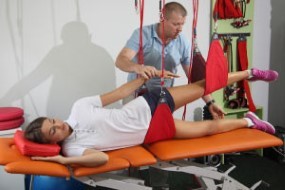Become a Physical Therapy Assistant with this free diploma course
This physiotherapy course teaches you everything you need to know to help people to recover from injury or illness as a physical therapy assistant or aide.
This course teaches you how to help patients improve their mobility and manage pain and other chronic conditions. A physical therapist aide plays an essential role in helping patients recover from injuries. This course identifies the function of different parts of the human body and provides techniques to help them to recover and strengthen. Physical therapists require these skills and we explain how aides support them in this important work.
What You Will Learn In This Free Course
Introduction to Physical Therapy
This module introduces you to physical therapy including the history of physical therapy and the difference between a physical therapist and a physical therapy aide.
Career Opportunities and Skill Sets
In this module, you will learn about career opportunities and skill sets involved in the role as a physical therapist. You will also learn about the day to day work of a therapy aide.; Module
Medical Terminology
In this module, you will learn about medical technology as well as general equipment used in physical therapy and what Orthotics is used for.; Module
Treatment of Common Medical Disorders
In this module, you will learn about treatments of common medical disorders including various range of motions, such as elbow ROM, and different forms of modality such as ice massages.; Module
Diploma in Physical Therapy Aide – First Assessment
You must score 80% or more to pass this assessment.; Module
Basic Structure and Function of the Human Body
This module teaches you about the basic structure and function of the human body including different types of muscle tissue, common cardiopulmonary pathologies, and the difference between the axial skeleton and the appendicular skeleton.
Turning and Positioning the Patient
In this module, you will learn about Turning and Positioning the Patient including tips for lifting and methods for scooting transfers. You will also learn about pressure ulcers and bed mobility.; Module
Therapeutic Exercises, Agents and Modalities
In this module, you will learn about therapeutic exercises, agents and modalities ranging from the use of crutches to hydrotherapy.; Module
Diploma in Physical Therapy Aide – Second Assessment
You must score 80% or more to pass this assessment.; Module
Course assessment
User Reviews
Be the first to review “Become a Physical Therapy Assistant with this free diploma course”
You must be logged in to post a review.







There are no reviews yet.